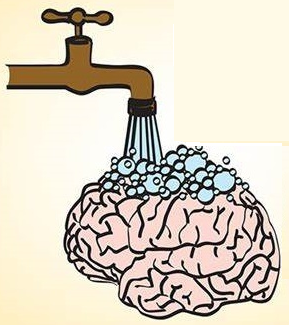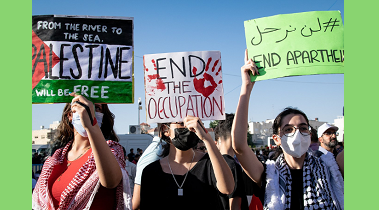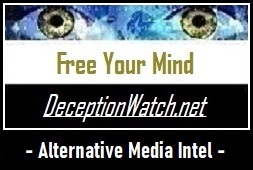
...you can have the most damning information imaginable about the people who rule over us sitting right out in the open, and you won’t see anywhere remotely close to the public outrage and backlash you ought to see. The US government can literally back a genocide without hiding any part of it, and the political-media class will simply manipulate public psychology into getting lost in a bunch of hogwash about self-defense and human shields and difficulties delivering food and medical supplies and hey Biden is working hard to do the right thing here and it’s all very complicated and everything bad that happens in Gaza can be blamed on Hamas anyway.
It’s a truly astonishing power that would inspire awe if it wasn’t so evil. Power is controlling what happens, but real power is controlling what people think about what happens". -Caitlin Johnstone

A pro-Palestinian protest calling for the end of Israeli apartheid and occupation
What Exactly Do We Want from the River to the Sea?
By Alain Alameddine | Nov 25 2023
Banning the expression ‘from the river to the sea’ on the grounds of it being genocidal makes, to say the least, quite a number of assumptions.
It is not hard to make that call when Bezalel Smotrich uses the expression since he identifies as a fascist. But it would be quite a stretch to assume all who use the same expression are equally sick.
Still, we—Palestinians and allies—need to realize that since from the river to the sea refers to a geographic area, not a political vision, it is our responsibility to clarify what exactly we want to see happening there.
One Democratic State: A 100-Year-Old Vision
Palestinians living under the British occupation wanted what every other colonized society in the world wanted: their own independent state, over all of their land – from the river to the sea.
However, Palestine’s situation was exceptional in that the United Kingdom had effected there, without political mandate from the indigenous population, a mass migration of foreigners.
Its purpose was explicit: it was “something colonial”, to quote Herzl, who envisioned the establishment of a “Jewish state” over a land whose natives would be sent “across the border”.
In other words, genocide at worst, ethnic cleansing at best, from the river to the sea.
How Did Palestinians React then?
They refused colonization, of course—but what did that entail for the foreigners who were now there?
Remarkably, and in line with the Arab Palestinian tradition of welcoming Armenian, Circassian, Jewish, Kurdish and other refugees, what the Palestinian leadership proposed to the King-Crane Commission in 1919 was “one state for all of its citizens”.
The resolutions of the seven Palestine Arab Congresses between 1919 and 1928, petitions to the British Mandatory and League of Nations in the 1930s, positions at the St James Roundtable talks of 1939, at the Anglo-American Commission in 1946 and at the UN Special Committee on Palestine in 1947 all proposed variations of the same vision for a democratic Palestinian state, from the river to the sea.
Even more remarkably, the Nakba did not change this.
The Palestinian Liberation Organization’s 1964 Palestine National Charter explicitly stated that “Jews of Palestinian origin are considered Palestinians if they are willing to live peacefully and loyally in Palestine”.
The only thing that could stand in the way of their obtaining full Palestinian citizenship would be their own refusal to.
The revised 1968 charter even dropped this condition, simply stating that “the Jews who had normally resided in Palestine until the beginning of the Zionist invasion will be considered Palestinians”.
The PLO’s main factions further clarified the nature of such a state as “secular and democratic”.
In stark contrast to the colonizers’ political project for the eviction of natives from their lands, the native Palestinians offered foreigners the possibility of remaining as citizens, not settlers, between the river and the sea.
Eventually, this political vision for an inclusive, secular, democratic Palestine faded as Palestinian “leaders” succumbed to Zionism’s essentially racist claim that “Palestinian” and “Jewish” are mutually exclusive, the logical conclusion of which would be to split the land between the river and the sea on identitarian grounds.
What about Today—And What Can Be Done?
A March 2023 poll in the 1967 Palestinian territories showed that “28% supported abandoning the two-state solution and embracing a one-state solution for Palestinians and Israelis”.
This is not to say that 72% supported the two-state proposal (only 29% did)—most were simply lost and chose to keep up the liberation struggle without a definite goal.
Yet, 0% spoke of throwing people in the sea.
Meanwhile, polls in the 1948 Palestinian territories showed that close to half of Israeli Jews wanted to “expel or transfer Arabs from Israel” while, again, 0% of Palestinians with Israeli citizenship wanted to do the same to Jews.
The One Democratic State Initiative’s recent “Open Letter to Our Jewish Allies”, which explicitly calls for the dismantling of the settler colony and the establishment of an inclusive, secular, democratic Palestinian state for all of its citizens garnered 14,000 Palestinian signatures in just a few days.
Zionist claims that what Palestinians want between the river and the sea is a genocide of Jews seem to be a projection of their own desires rather than a reflection of Palestinians’.
By refusing to weaponize identity back, the vision for a transition from the “Jewish state” to a state of all its citizens is the fundamental antithesis to Zionism.
In fact, its moral superiority is one of its strongest points, and definitely a reason why millions took to the streets in support of Palestine while only a few thousands did the same for Israel (even when paid to do so).
To quote Miko Peled, “The calls for justice in all these massive protests are very clear: the state of Israel—not the people of Israel—need to go. ‘Free Palestine’ means a free Democratic Palestine on all historic Palestine.”
Reclaiming the narrative and centering it around the solution will protect Palestinians from falling into defeatist, sectarian discourse such as the two-state proposal.
It will sort our true allies from our fake ones. And by laying bare Zionism’s lie that our issue is with Jewish identity rather than with the settler colonial project, it will discredit it, make it harder for politicians to side with it, affect popular opinion even further, and bring honest-hearted Israelis to our side.
You, personally, can take part in this, whether by mentioning this vision in your personal political discourse, making extensive use of “One Democratic State” visuals when participating in marches, or taking part in organized efforts to do so.
Activists organizing demonstrations in areas that view from the river to the sea as genocidal will need to make their own decisions regarding whether to refer to the geographic area or not, and if so, using which expressions.
But what is more crucial is being vocal about what we want to see, not only between the river and the sea but even beyond them: A transition from colonialism and its weaponizing of identity to democracy.
[source]
~
Also see: Yes, Zionism is Settler Colonialism
